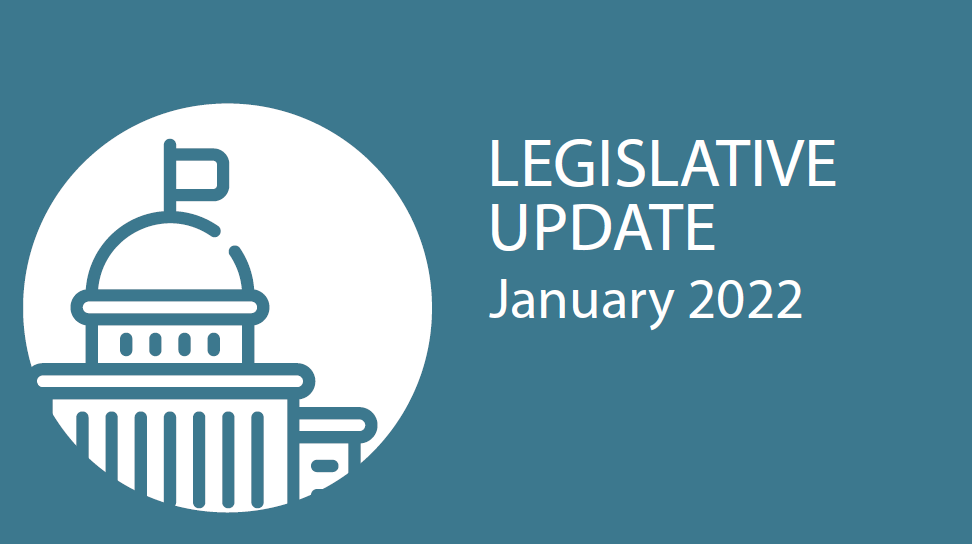This website uses cookies so that we can provide you with the best user experience possible. Cookie information is stored in your browser and performs functions such as recognising you when you return to our website and helping our team to understand which sections of the website you find most interesting and useful.
News
2022 is off to a Slow Start in the Senate
Despite returning from its holiday recess a week earlier than the House, the Senate spent most of its time somewhat inactive as opposed to resuming the intense schedule that had been punted into 2022. The slow start was a mix of inclement weather, former Sen. Johnny Isakson’s funeral, and stalled negotiations on the Build Back Better (BBB) Act, has clearly dampened the Democrats’ momentum.
Democratic Majority Leader Chuck Schumer ( D-NY) has shifted his focus to attempting to get a filibuster rule change in the Senate by Jan. 17. He is trying to overcome Republican opposition to a voting rights package he plans to bring to the Senate floor. The House will reconvene next week, but many Hill observers are questioning whether the current Senate legislative lull may extend through the end of the month.
There are also discussions being held among Democrats and Republicans about another round of coronavirus stimulus due to the spread of the omicron variant which is threatening economic recovery. Sens. Ben Cardin (D-MS) and Roger Wicker (R-MS) are reportedly working on “outlines of a roughly $68 billion proposal” made up of new spending and repurposing some of the unused cash authorized under previous COVID relief packages.
One thing is certain, regardless of what the Senate is working on, Sen. Joe Manchin (D-WV) has cemented his role and power as one of the top factors that will determine the fate of the Democrat’s policy agenda, both in terms of content and potential success in passage. This applies to voting rights, filibuster rules changes, the reconciliation package, or whatever legislation the Senate (and by extension the House decides to tackle as they move forward with their 2022 agenda.
Returning to the media spotlight in Washington, Sen. Joe Manchin (D-WV) bluntly told reporters on Jan. 4 that he was not in talks with the White House or Democratic leadership on reviving the BBB, putting the administration’s signature domestic policy initiative on hold. While other members spoke of progress on the BBB, Manchin was straightforward, declaring he was tired of discussing the $1.7 deal and complaining that he has already and repeatedly made his positions very clear on the bill. Although he insisted he no longer wanted to talk about the BBB, Manchin also did not rule out continuing the talks altogether.
The same day, Majority Leader Schumer said that he and Manchin had spoken briefly about the reconciliation package during the holiday recess and that Manchin had promised to bring some version of the bill to the floor. Schumer reiterated that he still intends to hold a Senate vote on the BBB and promised that his caucus will continue to vote until the bill is passed.
Water Infrastructure Tops EPAs 2022 Agenda
Environmental Protection Agency (EPA) Administrator Michael Regan sent a letter to state governors in early December saying the agency would make $44 billion in water funding available over the next five years through state revolving funds. The first tranche of funding, totaling $7.4 billion, will be distributed to states, tribes, and territories next year. Nearly half of the funds will be in the form of grants or fully forgivable loans. EPA Assistant Administrator Radhika Fox will soon issue guidance to states on the use of water infrastructure funding. Regan urged states to prioritize the money to underserved communities that haven’t received their “fair share” of federal water infrastructure funds. He also encouraged states to direct funds to removing as many lead service lines as possible to help fulfill the Biden administration’s ambitious goal of replacing 100 percent of the U.S ‘s lead service lines.
Meanwhile, EPA’s Office of Inspector General (OIG) has released its FY22 Oversight Plan, overseeing EPA’s implementation of the administration’s top priorities for FY2022, including elevating environmental justice (EJ) and addressing climate change. This is despite some older, high-profile reports that are a source of disagreement between the OIG and EPA, and need to be resolved through dispute resolution. IG Sean O’Donnell is concerned that EPA is not prepared to spend and manage the nearly $50 billion it will receive through the infrastructure package and plans to focus on ensuring that it is spent properly.
O’Donnell’s office plans to audit of state drinking water revolving loan fund subsidies to disadvantaged communities, as well as EPA’s use of American Rescue Plan funds to assure that they were awarded for projects that identify and address disproportionate environmental or public health harms and risks in minority and low-income populations. The OIG will also evaluate the implementation of EPA ‘s 2018 action plan to reduce childhood lead exposure and assess the extent to which EPA ‘s implementation of the 2018 revised Safe Drinking Water Act emergency order has reduced lead exposure in public water systems.
In addition, the plan calls for an audit on water infrastructure resilience against climate change. This is to determine how well EPA has worked with water authorities to ensure new construction and infrastructure improvements are resilient against climate change, as outlined in Biden’s executive order.


